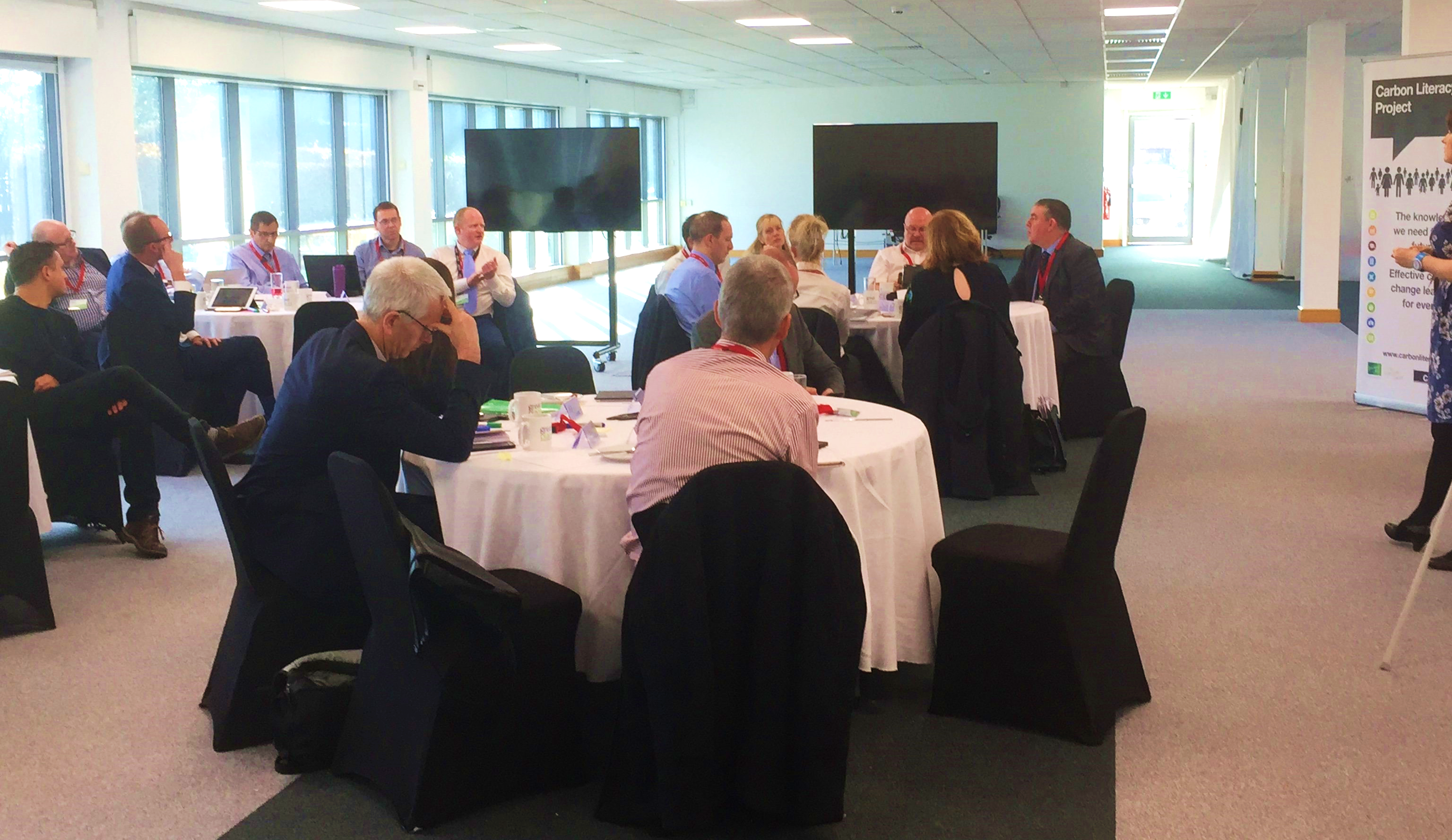Our News
Leading a Carbon Neutral Greater Manchester

On the 21st of March at the Green City Summit, evidence was presented to accelerate the Greater Manchester’s (GM) drive to carbon neutrality. The Tyndall Centre presented a ‘carbon budget’ that suggested a target date of 2038 for the city region’s carbon neutrality – and the need to start reducing our footprint by 13% a year, starting imminently.
In response to this, it was decided that three ‘Leading a Carbon Neutral GM’ workshops would be held, inviting all public sector chief executives in GM, as well as those of the social housing sector, and some agenda-setters in the private and voluntary sectors.
Lead by Carbon Literacy Consultant, Sarah McClelland, and supported by a Carbon Literate GM Chief Executive, as well as staff from The Carbon Literacy Project this course was specifically designed with senior members of staff in mind. The sessions started with a refresher on the facts of climate change, relating this to the risks and opportunities it presents to the city region, followed by a chance to discover some of the things that their fellow leaders are already doing in response to this agenda. Part two of the day consisted of group-working, sharing or initiating plans that could drive action to a zero carbon society in their organisation and across GM. On completion of a follow-up activity to bring the learners up to the ‘days worth’ of CL learning, they will be eligible for certification as Carbon Literate – joining a small (so far) number of Carbon Literate leaders in the world.
As part of the sessions, participants were asked to consider how many people (staff, colleagues, volunteers) their organisation is directly responsible for. When combined throughout all three sessions, this number totalled over 100,000 people whom their decisions in the workplace could directly influence. Furthermore, when taking into account the total number of people each individual organisation addresses through their activities, this number totalled well into the millions. This staggering figure was labelled as representative of the number of opportunities they will have to influence the way things are done across Greater Manchester and much further afield.
As quoted by Carbon Literacy MD, Dave Coleman during the session, the saying ‘With great power, comes great responsibility’ was apt; but also in reverse, ‘With great responsibility, comes great power’, which seemed to resonate with the people in the room. As senior leaders of their organisations, they already possess the necessary power and influence to create change, however, the overall aim of these sessions was to equip them with the motivation and knowledge to lead the response in GM to the extraordinary challenge of carbon neutrality.
Climate change has all the characteristics of an existential threat. Unfortunately, these issues are rarely given priority within the political/economic/public sphere because of their complexity. What was taken from this session though, is the understanding that issues surrounding climate change are about how we run everything, and therefore should be embedded within everything that we do as a society. This will involve much collaboration, communication and adaption across organisational practices.
‘Start where you are, do what you can’ was the note that we chose to end the sessions on. However, exponential not incremental change is needed if we are to reach the 2038 target. The level of engagement of the leaders in the room was certainly a positive thing to see, and they particularly appeared to grasp the all-around benefits of starting now, not later. It will be exciting to see what impact these sessions have on the future of Greater Manchester and its response to the challenges presented by climate change.